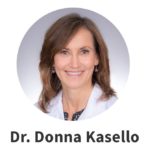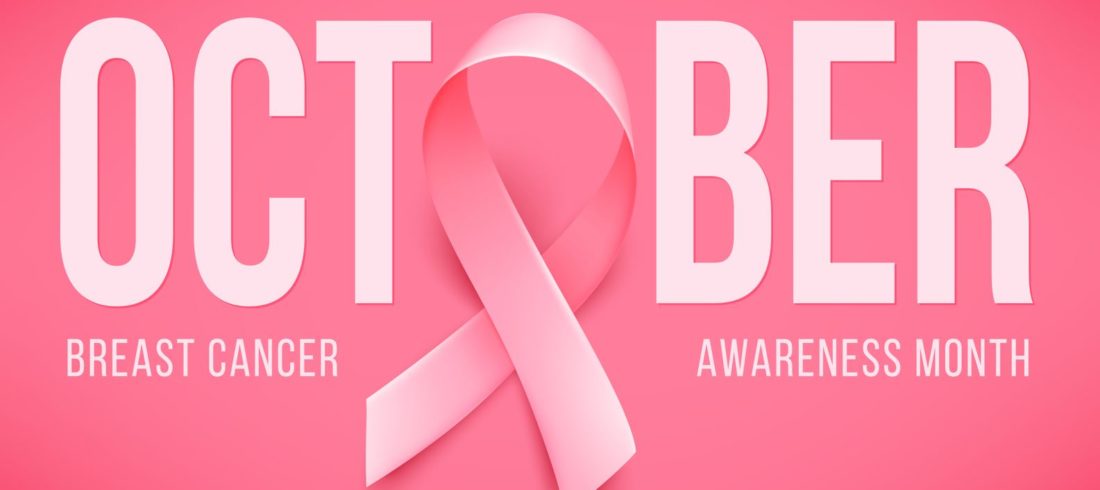It’s Breast Cancer Awareness Month!
Breast cancer is the most common cancer in American women, except for skin cancers. It is estimated that in 2023, approximately 30% of all new women cancer diagnoses will be breast cancer.
Breast Cancer Screening Cannot and Should Not Wait… Early Diagnosis Helps Save Lives.
In the United States, 1 in 8 women will be diagnosed with breast cancer. Over 90% of women diagnosed will now survive their cancer 5 years after diagnosis. According to Dr. Kasello, “One of the key components to the increase in survival is early detection, and that is accomplished with being diligent with screening for breast cancer by having a mammogram”.
At What Age Should Women Start Being Screened?
Dr. Kasello says that because of people’s different age and risk factors there are different recommendations as to when to start screening. The goal of screening tests for breast cancer is to find it before it causes symptoms (like a lump that can be felt). Screening means tests and exams used to find disease in people who don’t have any symptoms. Early detection is about diagnosing breast cancer before any symptoms may have started.
American Cancer Society Screening Age Recommendations
For Women with Average Breast Cancer Risk
Average risk means that you don’t have a personal history of breast cancers, a strong family history of breast cancer, or a genetic mutation known to increase risk of breast cancer (such as the BRCA gene), and have not had chest radiation therapy before the age of 30:
Women between 40 and 44 have the option to start screening with a mammogram every year.
Women 45 to 54 should get mammograms every year.
Women 55 and older can switch to a mammogram every other year, or they can choose to continue yearly mammograms. Screening should continue as long as a woman is in good health and is expected to live at least 10 more years.
Dr. Kasello recommends and offers her patients to start screening at age 40 and yearly. However, the decision to screen and the frequency of screening is also a decision between the patient and her provider.
Mammograms and Other Screening Types
A mammogram is a low-dose x-ray of the breast. It can often find breast cancer at an early stage or changes that could become cancer years before physical symptoms develop.
Research has proven that early detection means that a woman (or more rarely, a man) is less likely to need aggressive treatment and is more likely to be cured.
New digital technology, often referred to as three-dimensional [3D] mammography, also known as tomosynthesis, is becoming more widely available. Research indicates that it appears to lower your chances of needing follow-up testing, and apparently finds more breast cancers, and can be very helpful for women with dense breasts. Breast Ultrasound has also become a useful tool to aid in early diagnosis, especially in women with very dense breasts.
For Women with a High Risk of Breast Cancer
According to the American Cancer Society, women who are at high risk for breast cancer based on certain factors should get a breast MRI and a mammogram every year. This includes women who:
- Have a lifetime risk of breast cancer of over 20%, according to risk assessment tools that are based mainly on family history ,have a known BRCA1 or BRCA2 gene mutation (based on having had genetic testing)
- Have a first-degree relative (parent, brother, sister, or child) with a BRCA1 or BRCA2 gene mutation, and have not had genetic testing themselves
- Had radiation therapy to the chest when they were between the ages of 10 and 30 years
Calculating Your Risk Factor
Dr. Kasello says that not everyone is aware of being high risk, “My own mother had breast cancer, which means it’s always on my mind, and I want my patients to be aware and knowledgeable about their risk levels. I like to dig into their family history and if their mother had breast cancer before menopause, we want to start screening at least 10 years prior to their mother’s onset of cancer. For those with the BRCA gene, we start at age 25 with appropriate screening”
Prevention is Possible – And Essential!
Dr. Donna Kasello is passionate about women’s health and wellness. She is a certified yoga teacher and completed her fellowship in Integrative Medicine. She believes in offering her patients strategies to avoid cancer through lifestyle modifications that include:
Eat Healthy
- Choose a diet high in fiber, particularly with lots of cruciferous vegetables (like broccoli, cauliflower, cabbage, kale, bok choy, arugula, Brussels sprouts and collards)
- Cruciferous vegetables have been shown to modulate estrogen metabolism
- Eat plenty of whole foods and whole grains
- Enjoy the Mediterranean diet
- Limit red meats
- Eliminate alcohol
Exercise Regularly
Regular exercise – women in studies who are physically active have lower incidence of cancer.
Dr. Kasello endorses a minimum of 150 minutes of exercise a week and that should include weight bearing training and aerobic exercise. However, she emphasizes that people should do what they can, “if you don’t have half an hour to exercise, do something for 10 minutes!”
Sleep Plenty
When we are better rested, we are able to exercise and eat better, too.
Reduce Stress
Psychological stress has not been shown to directly cause cancer but if we are stressed, it is harder to lead a healthy lifestyle, which can lead to health problems. Breathing techniques, meditation and relaxation can be helpful in stress-reduction.
Maintain a Healthy Weight
Dr. Kasello recommends keeping your Body Mass Index (BMI) in a healthy range throughout life. There is evidence that a high adult BMI is associated with an increased risk of post-menopausal breast cancer.
Don’t Put Off Regular Screening!
 Dr. Kasello has practiced medicine for more than 25 years and she is dedicated to helping her patients get well and stay well. She sees that patients are tending to have more illness and taking more medications at younger ages, which she attributes to a need for a better life balance and more exercise, healthy eating structure and natural remedies. She specializes in hormonal imbalances, menopausal issues, women’s sexual health and integrative medicine and sees patients at Premier Medical Group offices in:
Dr. Kasello has practiced medicine for more than 25 years and she is dedicated to helping her patients get well and stay well. She sees that patients are tending to have more illness and taking more medications at younger ages, which she attributes to a need for a better life balance and more exercise, healthy eating structure and natural remedies. She specializes in hormonal imbalances, menopausal issues, women’s sexual health and integrative medicine and sees patients at Premier Medical Group offices in:
- Eastdale Village, Poughkeepsie, NY
- Westage Center, Fishkill, NY
- Little Britain Road, New Windsor, NY
She encourages patients to make an appointment today by calling (845) 437-5000

